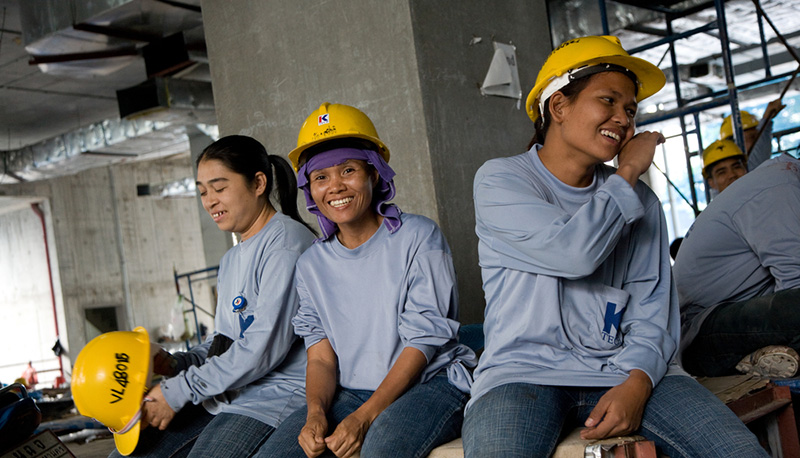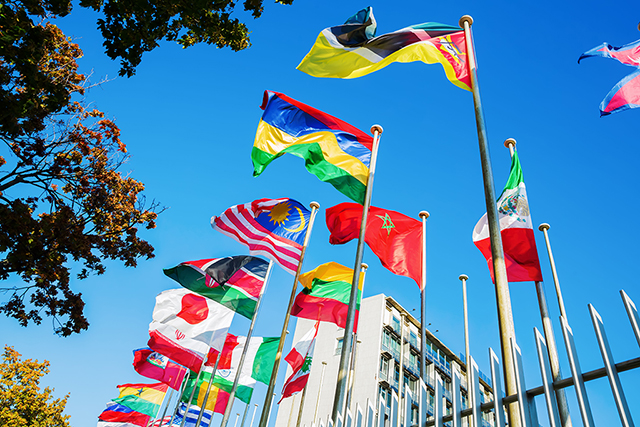Asia-Pacific Coalition of Cities Against Discrimination
What is APCAD?
 The Coalition of Cities against Discrimination in Asia and the Pacific (APCAD) was officially launched at the “Regional Conference of Cities for an Inclusive Urban Society” held in Bangkok, Thailand, from 3 to 4 August 2006, with the support of the Bangkok Metropolitan Administration, United Cities and Local Governments Asia-Pacific, and UNESCO. The long-term objective of APCAD is to provide local authorities with an operational programme that will allow a more efficient implementation of policies for a greater social inclusion of their city dwellers in the full respect of their human rights and fundamental freedoms in the political, economic, social, cultural or any other field of public life. Through a series of consultations, a Ten-Point Commitment relevant to Asia and the Pacific has been elaborated, composed of 10 commitments covering different areas of competence of local authorities such as education, culture, housing and employment.
The Coalition of Cities against Discrimination in Asia and the Pacific (APCAD) was officially launched at the “Regional Conference of Cities for an Inclusive Urban Society” held in Bangkok, Thailand, from 3 to 4 August 2006, with the support of the Bangkok Metropolitan Administration, United Cities and Local Governments Asia-Pacific, and UNESCO. The long-term objective of APCAD is to provide local authorities with an operational programme that will allow a more efficient implementation of policies for a greater social inclusion of their city dwellers in the full respect of their human rights and fundamental freedoms in the political, economic, social, cultural or any other field of public life. Through a series of consultations, a Ten-Point Commitment relevant to Asia and the Pacific has been elaborated, composed of 10 commitments covering different areas of competence of local authorities such as education, culture, housing and employment.
APCAD is one of the constituent regional coalitions of the International Coalition of Inclusive and Sustainable Cities (ICCAR), launched by UNESCO in March 2004 to establish a network of cities interested in sharing experiences in order to improve their policies to fight racism, discrimination, xenophobia and exclusion. To address specific priorities in different parts of the world, regional coalitions under ICCAR have been created, each with individual action plans. The regional coalitions are:

- Africa
- North America
- Latin America and the Caribbean
- Arab States
- Asia-Pacific (APCAD), and
- Europe.
The membership list of APCAD can be found here.
The last APCAD Conference was held on 1 June 2016, and marked the 10-year anniversary of APCAD’s founding.
APCAD’s 10-year Summary Report can be found here.
During the conference, 5 key focal areas were identified by the participants: inclusive responses to migration, combating HIV-related stigma, inclusive city-level responses to climate change and disaster risk reduction, the inclusion of people living with disabilities in urban areas, and the provision of affordable housing. The Regional Perspective Paper outlining these focal areas can be found here.
The upcoming APCAD conference, to be held in late 2018, will focus on local government’s responses to internal migration, aligning with UNESCO’s current research and policy initiative on internal migration in Southeast Asia, which aims to understand migrants’ experiences and develop inclusive responses to migration.
To join the coalition, please sign the statement of intent and send it to Dr. Sue Vize, Regional Advisor for Social and Human Sciences in Asia and the Pacific, UNESCO Bangkok, at shs.bgk@unesco.org. UNESCO strongly urges all interested city representatives to participate in the discussions and submit examples of good practice on a regular basis.
Previous APCAD Conferences were held on:
- Bangkok, Thailand, from 27 to 29 October 2005: Experts’ Meeting to finalize the Declaration and Ten-Point Plan of Action for the emerging Coalition of Cities against Racism and Discrimination in Asia and the Pacific
- Bangkok, Thailand, from 3 to 4 August 2006: Regional Conference of Cities for an Inclusive Urban Society
- Bandung, Indonesia, from 27-29 October 2009. The Conference was attended by approximately 200 city representatives around the world and issued the Bandung Declaration of the International Conference of the Coalition of Cities against Discrimination.
- Bangkok, Thailand, from 20 to 21 June 2011: International Conference on the Coalition of Cities against Discrimination: Global Social Inclusion.
- Metro Manila, the Philippines, from 16-17 December 2011: A Sub Regional Dialogue and Training Workshop on Reducing and Eliminating HIV-Related Stigma and Discrimination in South East Asia.
- City Hall, Gwangju Metropolitan City, Republic of Korea, from 15 to 18 May 2012: International Conference of the Coalition of Cities against Discrimination: Creative Cities for Glocal (Global + Local) Security and Peace.










